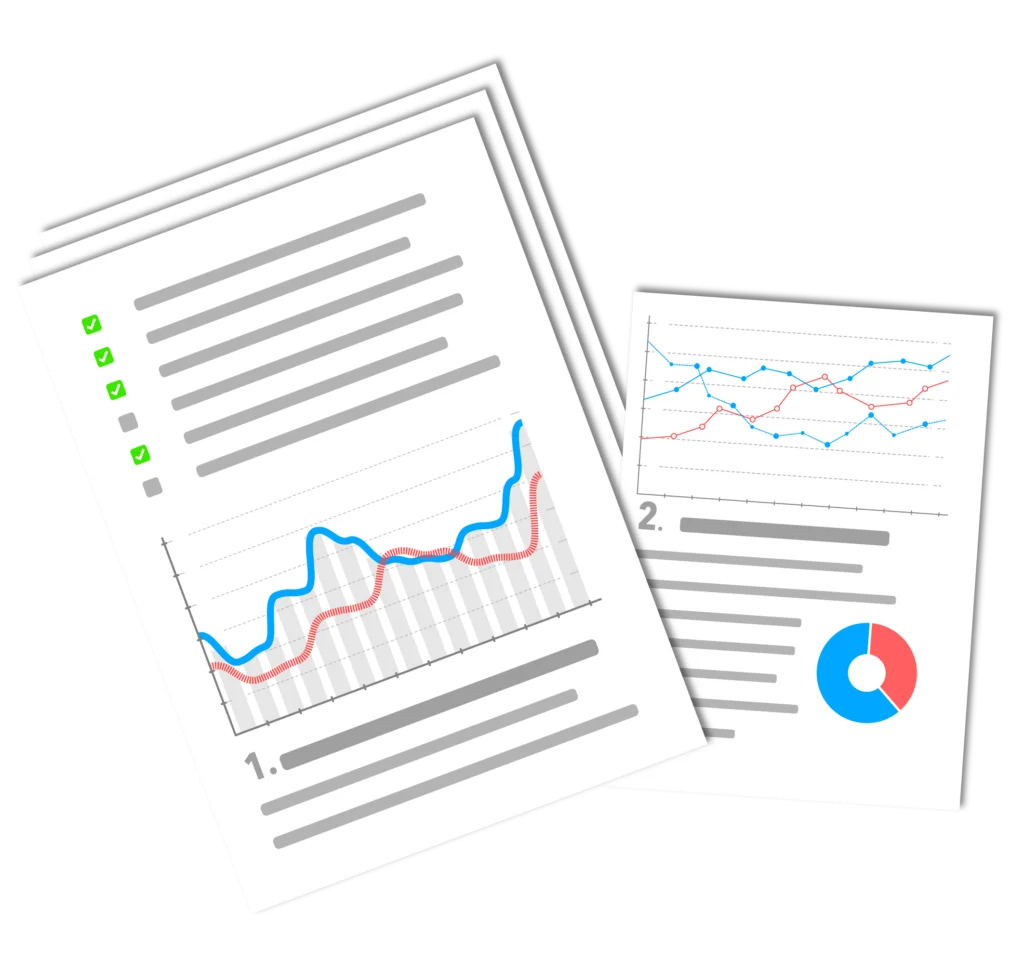I see people everywhere blindly relying on keyword difficulty values without understanding how they are calculated or what they mean.
The take-away from this post is that you should NOT trust keyword difficulty levels, as they are largely very inaccurate. If you blindly trust the Keyword-difficulty values, it may still happen that you get a bad result. Keyword select. This will result in you spending a lot of time and money trying to rank and possibly failing in the end.
If you want to understand why keyword difficulty scores are bad - and what the better way to "calculate difficulty" is - join me in the world of Keyword-Analysis Tools!
How keyword difficulty is calculated in each major keyword tool.
Any Keyword-Difficulty Score will take a hodgepodge of metrics from each of the top 10 results, apply them to a formula, calculate a "difficulty score" for each result, and then output it with a number between 1 and 100.
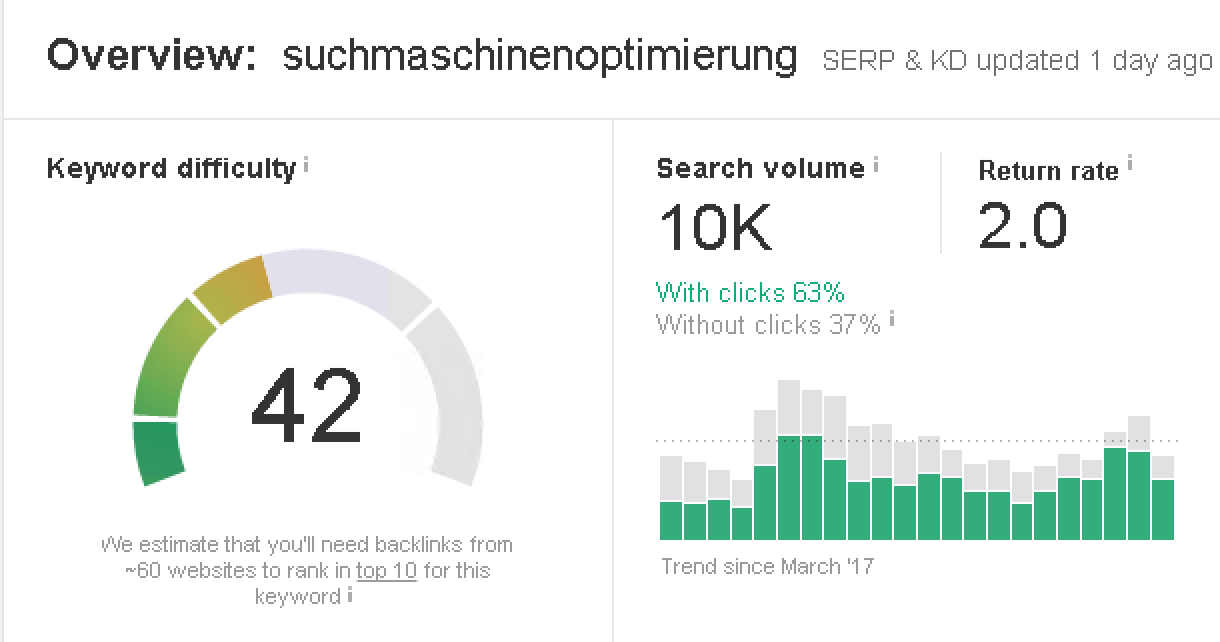
Such metrics are used:
- InTitle / InURL / InDescription – Erscheint das Schlüsselwort im Titel, in der URL or in the meta description of the result?
- Moz / Majestic ranks - How do Moz and/or Majestic, two major SEO companies, calculate the difficulty of this result (Moz usesPage authority and domain authority, Majestic uses Trust Flow and Citation flow).
- Number of Backlinks - How many Backlinks has this result?
- Social media- How many social shares does this result have?
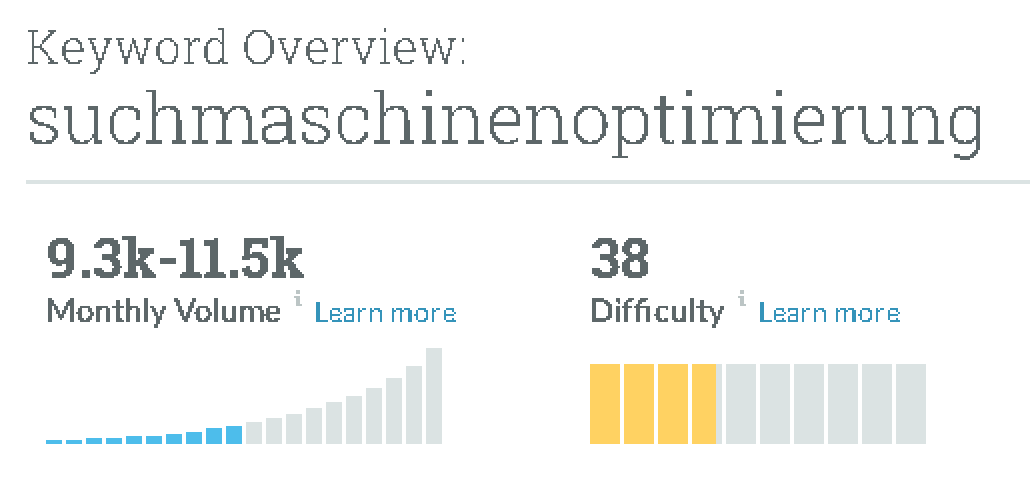
The formula assigns an arbitrary value to each of these determinants and specifies a degree of difficulty for each top 10 result. Then they are calculated, and that is your "Keyword Level of difficulty". Each of the most important Keyword-tools uses a slightly different formula to calculate the difficulty level, but they all work by taking into account the same metrics such as InTitle / backlink count / etc.
Why this "calculation method" is terribly inaccurate
For each individual metric used in the compilation of the "Keyword-difficulty scores", there are a number of ways in which the automated formula can be used to calculate the SERP-result may read incorrectly and display something inaccurate.
InTitle / InURL / InDescription
Google will recognize similar words and phrases as being exactly the same - it's a semantic Search Engine. A result may have a slightly different wording than the one you checked. Keyword which led to a NO vote for the Keyword-difficulty calculator, but in the eyes of Google it's a YES.
Moz / Majestic rank
While these values are usually somewhat accurate, they are not perfect, nor are they a reflection of what Google considers to be the strength of the site. For instance, it is very easy to manipulate DA and PA with poor quality links. Google will still consider the backlink profile to be WEAK, but because of the sheer number of links, Moz will consider the backlink profile to be STRONG.
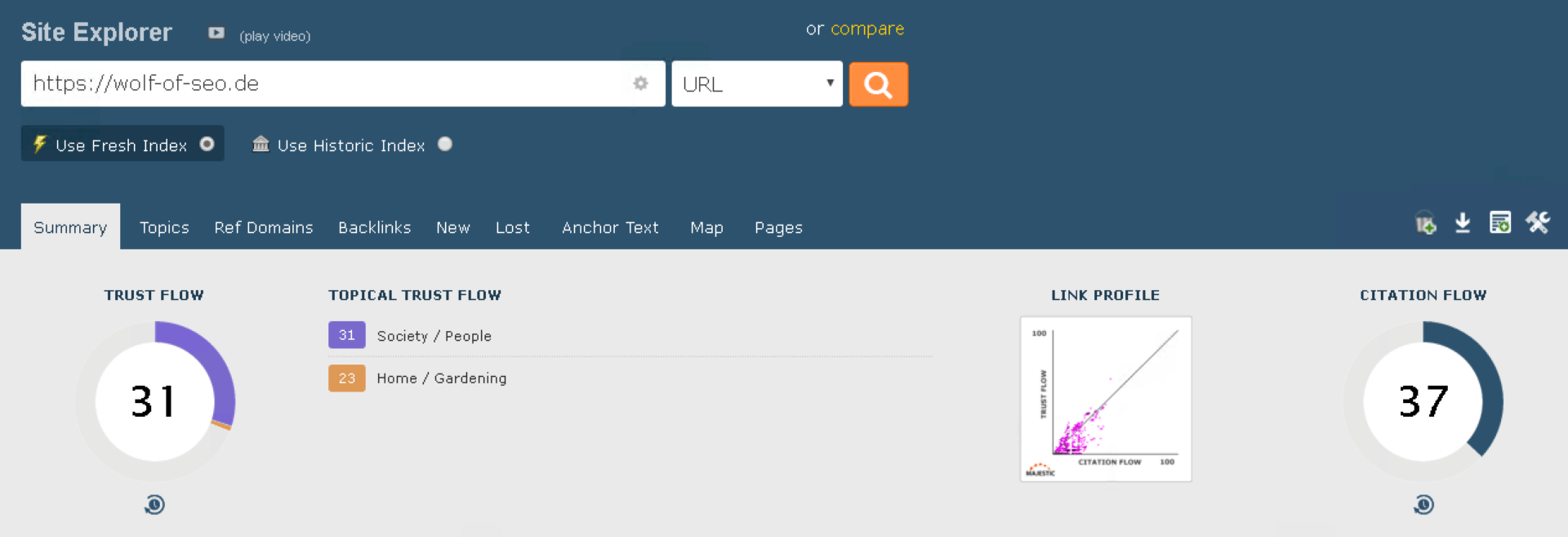
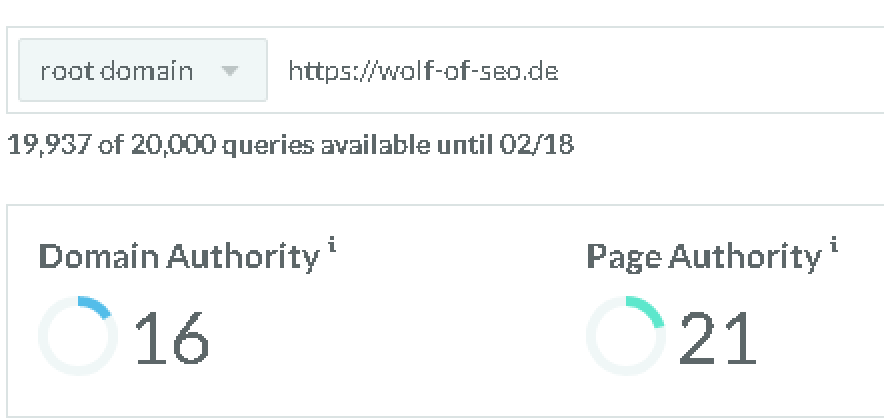
Number of backlinks & referring domains
This is where we have the biggest problem. There is not a single Keyword-tool that is able to deal with the quality of the Backlinks to deal with. This is an extremely difficult task and probably almost impossible. Instead, they focus on the number of Backlinks and not on the quality of the Backlinks. A page with 10 strong editorial links is considered WEAK to a Keyword-difficulty calculator, but a page with 5,000 forum profile links is displayed as STRONG in a Keyword-Difficulty Calculator and WEAK rated by Google. (The number of links generally tells you very little about the strength of the backlink profile).
Social Shares
Sometimes platforms take metrics like the number of social signals into account. No one really knows how powerful metrics like social signals are. So if a result has 1,000 Facebook shares, a Keyword-Difficulty calculator might see that as STRONG, while Google might NOT care. At the same time, a result without social activity from a Keyword-Difficulty calculator could be considered WEAK, and Google could NOT care.
When you combine all these possible missteps, there is plenty of room for error, and generally speaking Keyword-scores interspersed with errors. In general, the Keyword-Difficulty calculator will misinterpret at least one of the above determinants, resulting in a higher or lower keyword difficulty than the true difficulty. Add a few misreads and it's completely out of whack.
This means that you can use the Keyword sometimes find it too difficult and it does not fit into your Keyword-Include your strategy (even if it's easy). And you'll sometimes find it easy when it's hard, which means you're wasting time and money evaluating something impossible. The Keyword-Calculations cannot be trusted blindly as they can lead you down a path that wastes your time and money.
When keyword difficulty scores can be useful
Keyword Difficulty values can tell you when a Keyword is completely impossible or incredibly easy. That's the only real way you should use these difficulty values: to know at a glance whether a Keyword seems super hard or super easy or possible.
But there is still a certain probability that a hard result will have low competition and an easy result will have high competition. Therefore, do not trust it completely! There is too much at stake - your time and your money, so you better not be lazy and choose a bad one hastily Keyword off.
Keyword-Difficulty scores are generally of limited use for assessing low to medium competition keywords - apart from telling you that they are in that range. Two keywords with exactly the same competition can easily add up to 20 or 40. 20 is considered "very easy" by the tool and 40 is considered "medium" by the tool. In fact, two different variants of the same keyword can be very different due to the missteps in the Keyword-The calculation algorithm can spit out very different numbers.
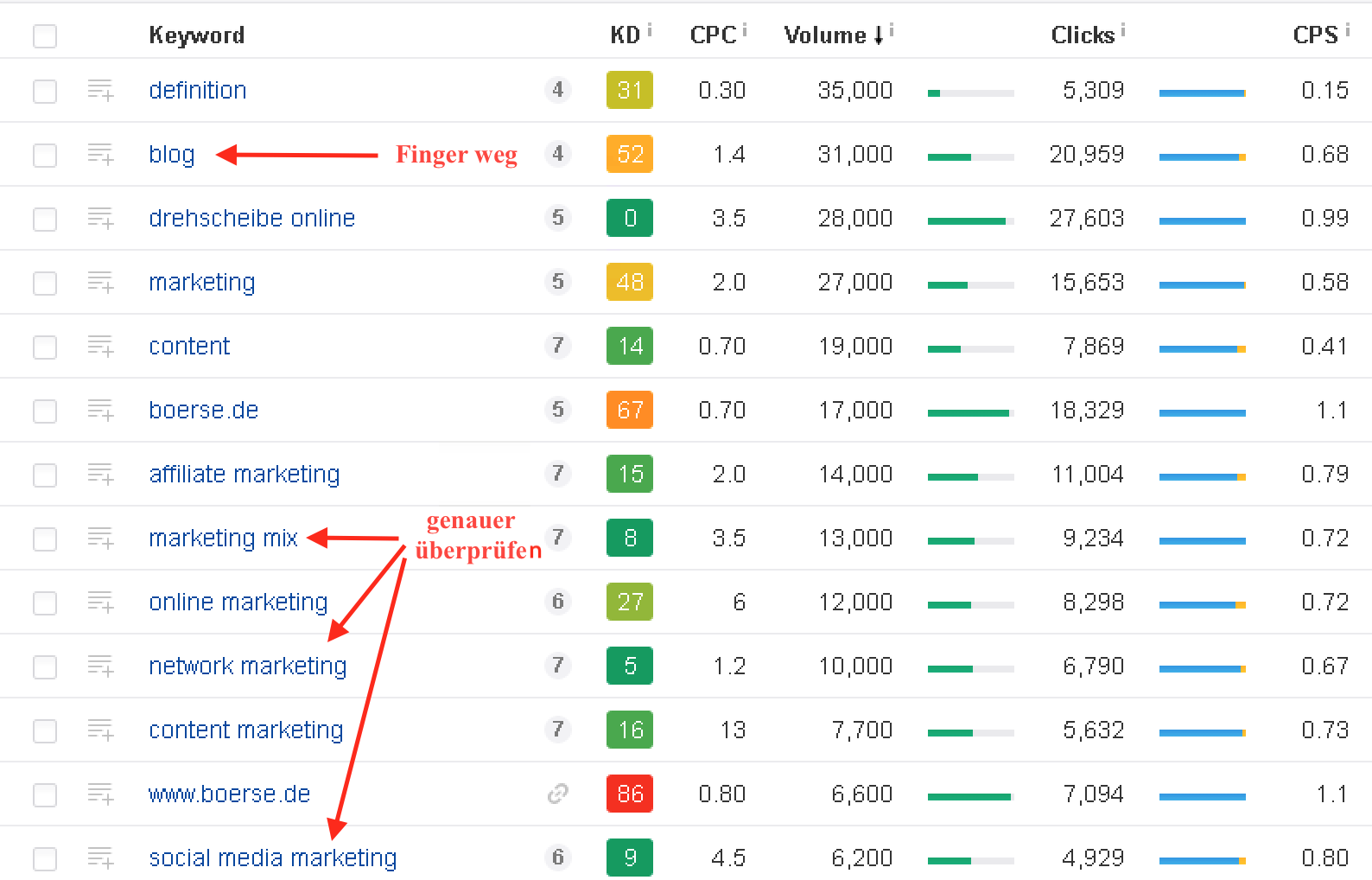
There is too much room for error to get an accurate estimate of the middle keywords - however, these are what most of us are targeting. All it can tell you is that the keyword is probably somewhere in the middle, or that it's extremely weak or extremely difficult.
How to create your own "Keyword Difficulty Calculator".
Intuition and the knowledge of how to SERP-The key is to assess the results. It's a skill and a very useful one at that. I can't install the skill in your brain, but I can tell you how to get started, SERP-analyze results and become better yourself.
Common sense
Have you just searched for "dog food" and seen a series of static category pages for E-commerce-Seen sites like Petco and Amazon with thousands of "dog food" products in every category? If it's anything like that, it's probably not worth looking at. Any obvious visible keywords are probably untraceable.
Search volume
Consider a 53,000 queries/month search term with 1€+ CPC? It's probably not easy. The more profitable a Keywordthe more competition it will have. In general, it is not possible for an average budget to win high volume, high profit keywords. While there are high volume, low competition keywords, you probably won't find them as a beginner. Use the Search volume as a guide - do not look at a basicKeyword over 10,000 searches if you are a beginner, would be my advice.
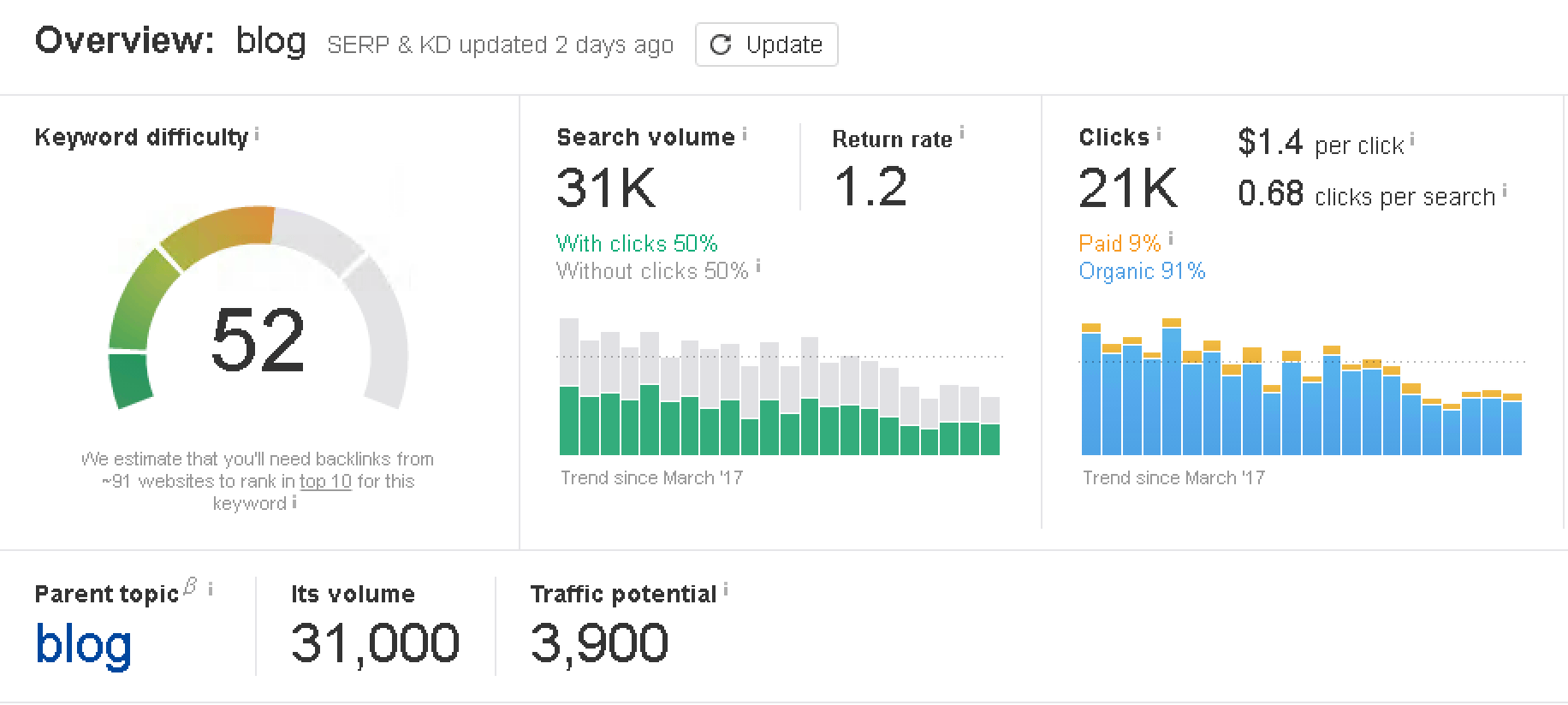
View the top 10Results
Missing the Keyword wirklich in den Top 10 Ergebnissen, oder gibt es eine andere Variante oder eine andere Art, es zu sagen? Die Chancen stehen gut, dass Google 2019 keine Ergebnisse liefert, die völlig irrelevant sind, also stellen Sie sicher, dass Sie sich nicht selbst anführen. Aber, es lohnt sich, sich so etwas anzuschauen: Wenn Sie „Blackhat SEO“ suchen, aber alle Top-10-Ergebnisse nur über „SEO“, sprechen und, „Blackhat“ oder eine Variation oder andere Art der Formulierung nicht erwähnen, können Sie auf eine Lücke gestoßen sein.
Take a look at DA/PA
Do the top websites have any of these numbers close to 100 or 0? If so, the score may not be entirely accurate. For example, a Weebly site returns a very high DA, but Weebly results are not particularly powerful because anyone can create a site on Weebly.
All Web2.0 sites will have a high DA score, but that doesn't matter because it's a second-tier subdomain. At the same time, if a result has 1 PA or 3 PA, Moz might just not have enough data on that result to calculate a PA - it's probably not really 1.
Check the backlink profiles
All of this is important, but the backlink profile is by far the most important. THIS IS THE VARIABLE THAT ALMOST ALL KEYWORD-CALCULATE DIFFICULTY CALCULATOR INCORRECTLY.
The number of Backlinks does not determine the strength of the backlink profile. You have to look at the actual Backlinks and see what their value is. If a result is entered into a backlink checker (Moz, Ahrefs, Majestics, etc.) and note what you see.
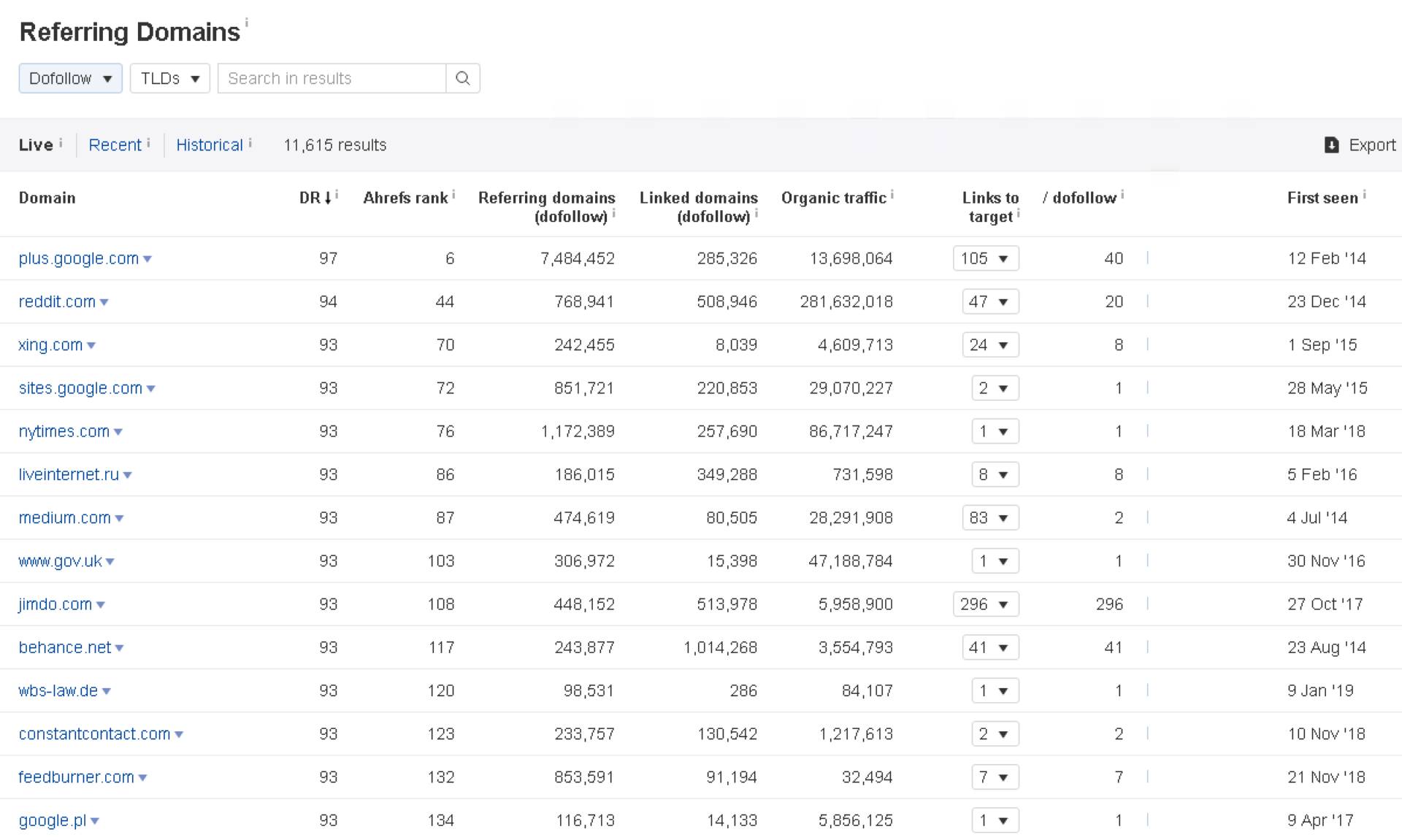
Are they spam links? PBN links? Honest editorial links to God? Many spam links don't mean much. However, just a few strong PBNs or editorial links can mean a lot. You need to understand what types of links actually have an impact. Once you understand that, you can analyze backlink profiles of potential keywords to see if you can match or exceed the profile's performance. If you can, you may have a successful Keyword found
Why category pages can rank strongly
But not everything is about Backlinks - For example, a static category page on an authority site might not have a ton of Backlinksbut any of the posts or pages within that category could be added to the category page through the internal linking push. So even if the category page does not have Backlinks has, she could still have a lot of link power driving her.
As another example, a highly relevant page in an online magazine will still have a lot of power, even if it really has no external links. Part of the decision about competitiveness is the balance between Backlinks and internal links.
At the end of the day, you never know for sure if a Keyword is simple.
You don't have access to Google's exact algorithm - but with enough experience through lots of testing and experimentation, you'll be able to find a good one right away. Keyword and recognize an opportunity.
Many other relevant points
Take it into account, but don't put too much weight on it. If a result has thousands of social shares. Were these perhaps bought or worthless to Google - again, no one knows. This is just one example, but there are many more beyond the scope of this post.
Steps to analyze a keyword
That's how I do it, instead of relying on inaccurate Keyword-tools.
- Determine if the keyword is remotely possible. Use common sense, general Keyword-results and the factors described in this guide to make this decision. Dive into the strength of the backlink profile. If you find that the Backlinks of the results are nothing special, continue.
- Weigh the backlink power against the internal link power. If there are authoritative but low-link results at the top, could you beat the results with a new low-authority website but a very strong link profile?
- If you think you can do it, do it! One of two things will happen. You will either have a good Keyword and a good Ranking and make money, or you won't, and you will learn a valuable lesson about the Keyword-Learn analysis.
Be careful and check for errors. Don't be rushed into the excitement of creating a Keyword and don't make a decision based on incomplete information. Really look at the best results for the keyword to search for something unusual. Did you miss something? It's best to, Keyword-Continue researching within a niche for a few days before deciding on something if you're new to SEO. If you fall into a bad Keyword invest, you are only wasting your time and money.
Conclusion
Overall, the KeywordResearch is a wide-ranging skill that requires experience to do well. Now try to find a Keyword to find. Use this guide as a starting point. Once you do some research of your own, you will no longer need this guide, and all your new ideas and Keyword-Strategies will yield lucrative keywords. All it takes is time and research until you have a good Keyword find, and then develop a strategy.
Open questions? Feel free to write me a comment. I will answer every question.


